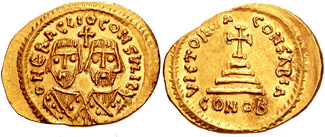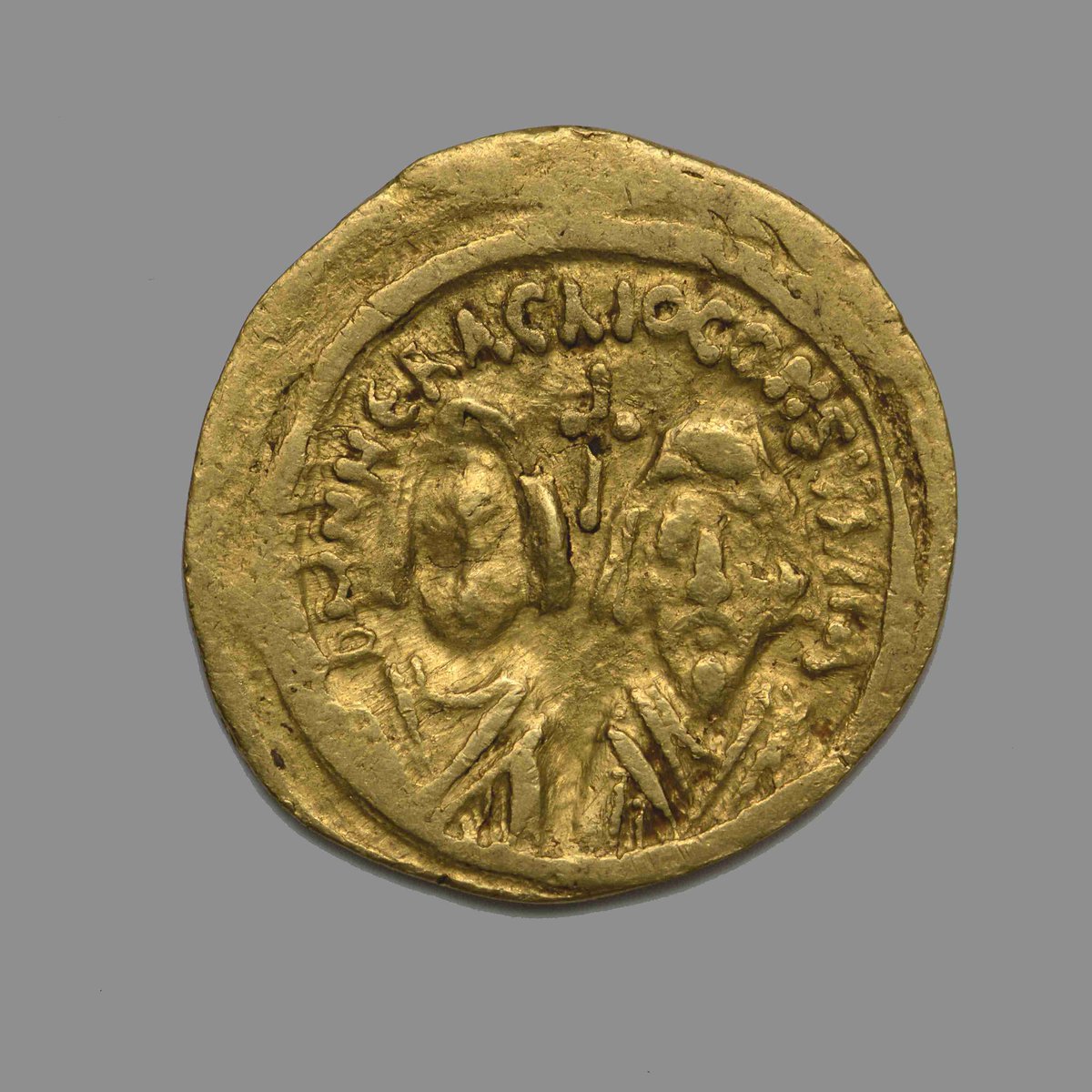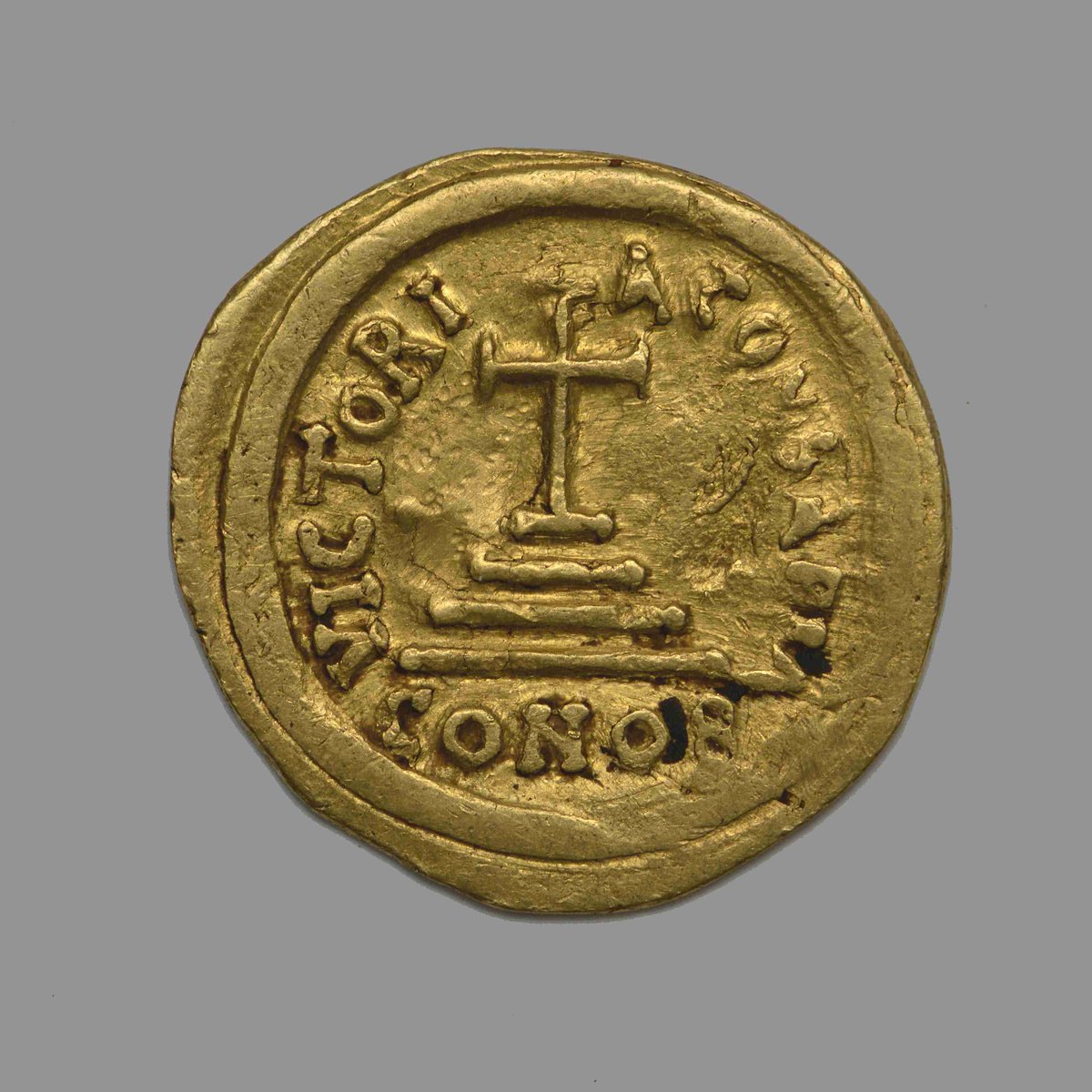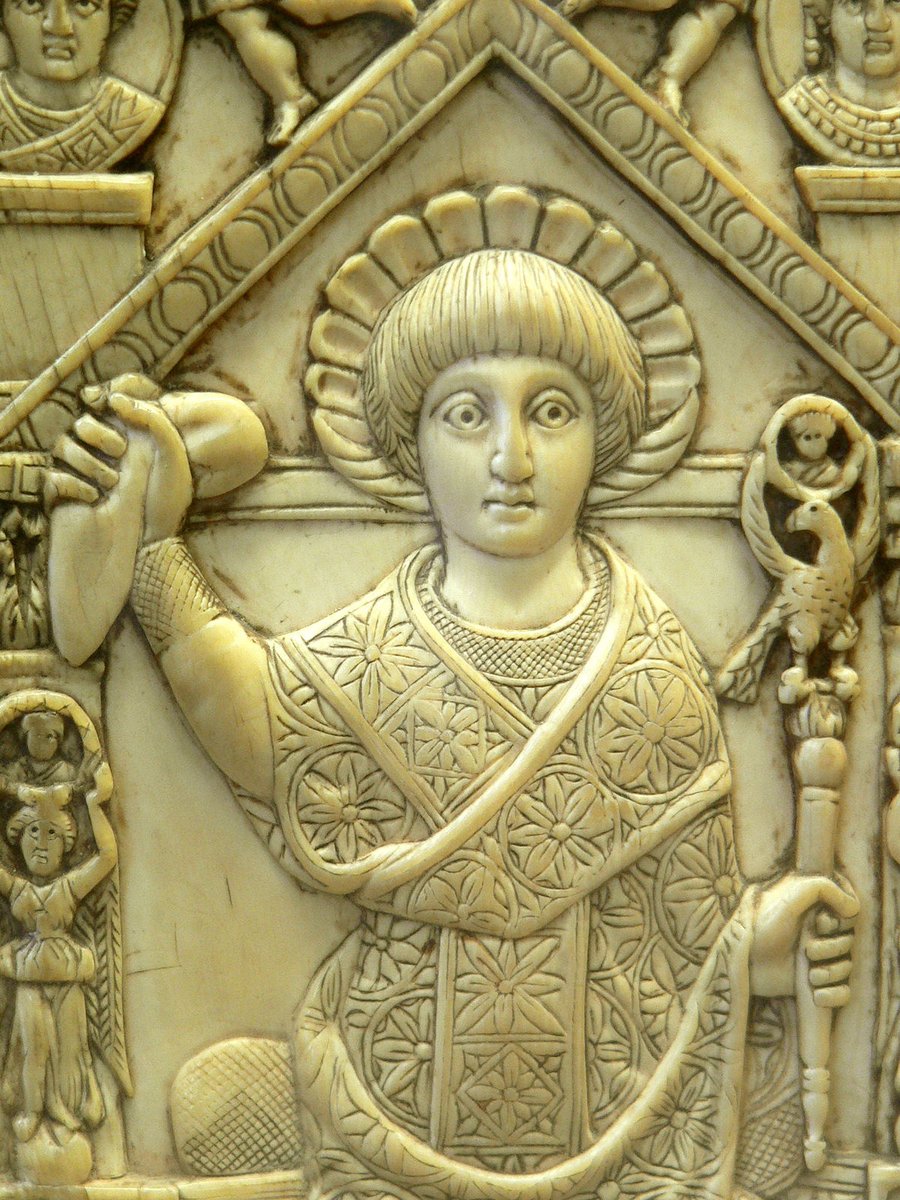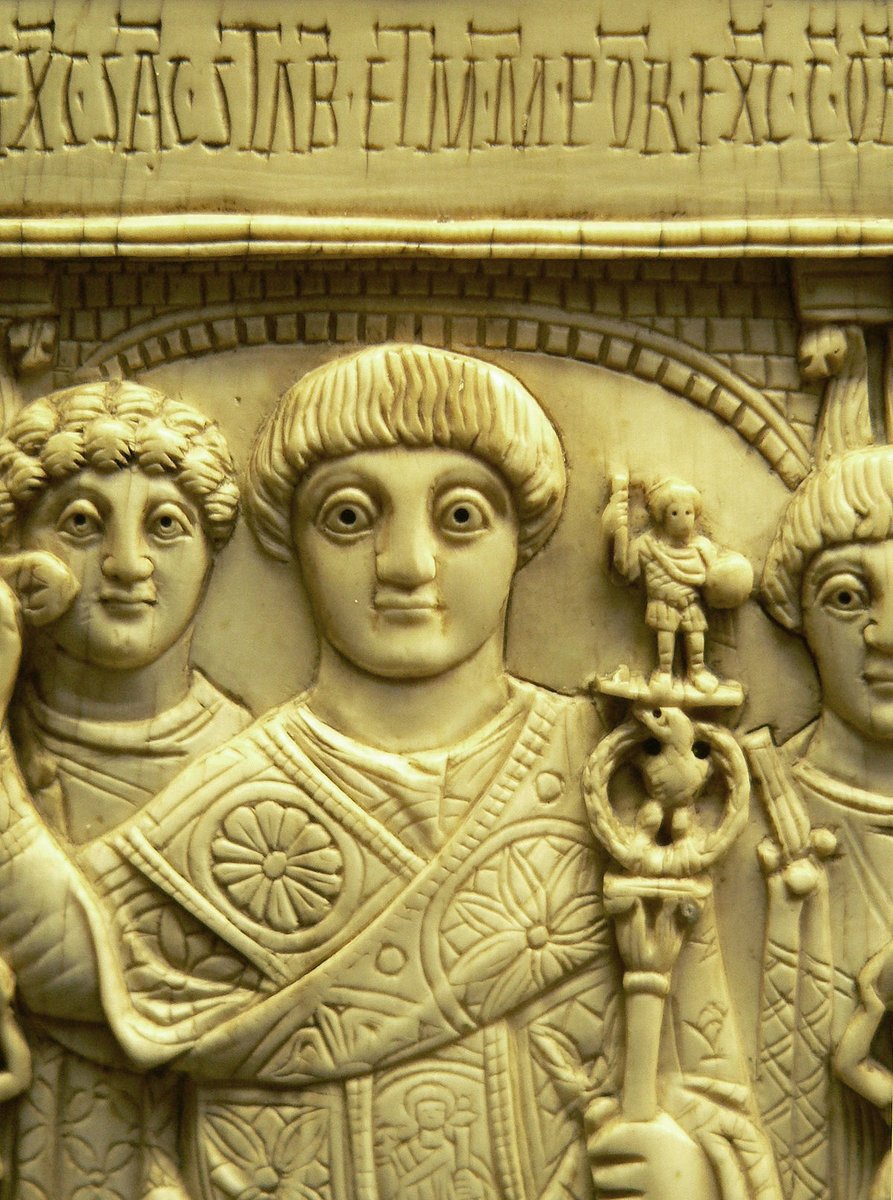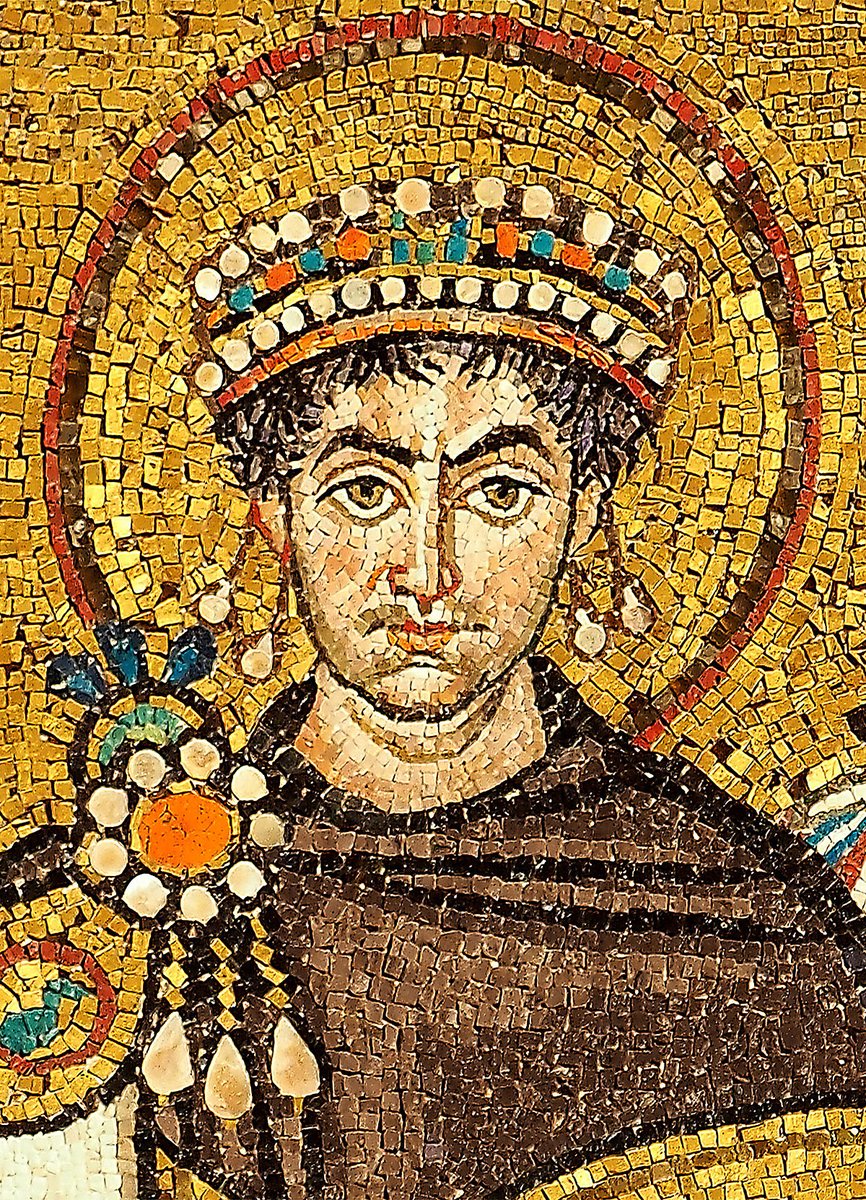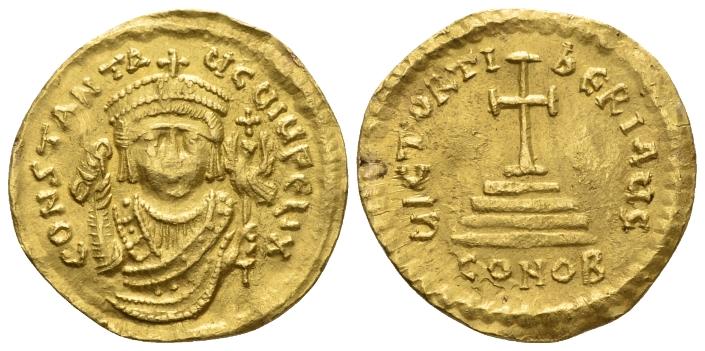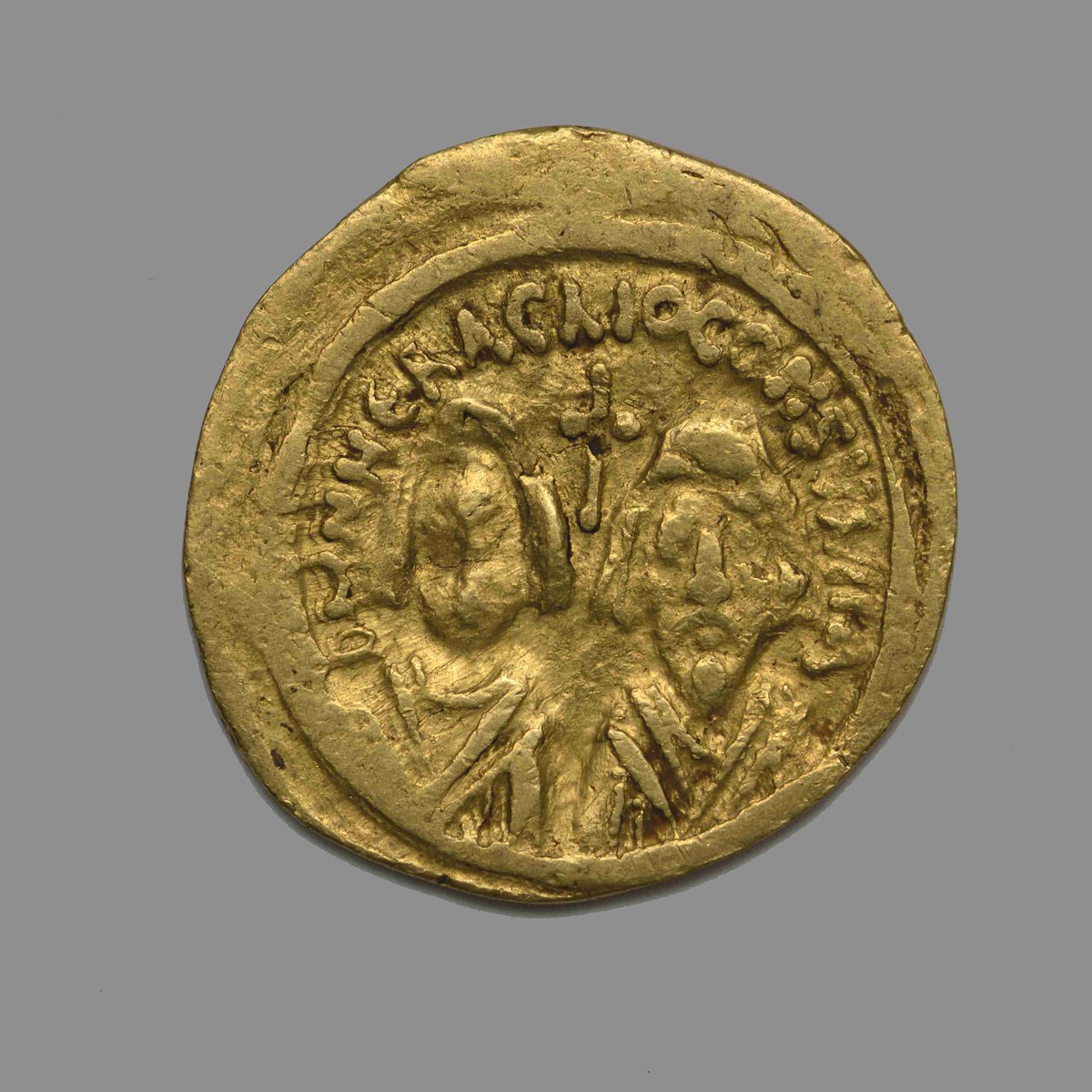There are a couple of peculiarities in the coinage of Heraclius.
The beard is one thing, the other is that he, together with his father, minted coins even *before* he was crowned emperor in 610.
Minting coins was an imperial privilege, having your face on it, too!
How dare he? https://twitter.com/NViermann/status/1293166413918736385">https://twitter.com/NViermann...
The beard is one thing, the other is that he, together with his father, minted coins even *before* he was crowned emperor in 610.
Minting coins was an imperial privilege, having your face on it, too!
How dare he? https://twitter.com/NViermann/status/1293166413918736385">https://twitter.com/NViermann...
You might think that Heraclius is a usurper, and that’s what usurpers do. But it is a bit more difficult than that…
On these coins struck in Carthage between 607/8 and 610, Heraclius Junior and Senior are not portrayed as emperors but as consuls. What’s that supposed to mean?
On these coins struck in Carthage between 607/8 and 610, Heraclius Junior and Senior are not portrayed as emperors but as consuls. What’s that supposed to mean?
The legend is a variation of:
D(omino) N(ostri) ERACLIO CONSULI
VICTORIA CONS(ulis) or CONS(ulibus)
Both men were the typical consular dress, the loros, and no crown.
D(omino) N(ostri) ERACLIO CONSULI
VICTORIA CONS(ulis) or CONS(ulibus)
Both men were the typical consular dress, the loros, and no crown.
To understand these issues, it’s necessary to take a closer look at the consulate.
In late antiquity, this office was still awarded to the highest civil and military officials; emperors themselves often acted as consuls. See Anastasius and Areobindus below (and note the loros!)
In late antiquity, this office was still awarded to the highest civil and military officials; emperors themselves often acted as consuls. See Anastasius and Areobindus below (and note the loros!)
The consul was expected to host and fund lavish festivities in Constantinople, very popular with the people. Justinian allowed the consulate to lapse after 541. Probably because he didn’t want to risk exposing a potential contender for political power.
After more than two decades, Justinian’s nephew Justin II again took on the consulate after his coronation in 565. From then on, the consulate was restricted to members of the imperial family. Thus, the office became a token of imperial dignity. See Tiberius Constantine below.
This is the context we need to understand Heraclius’ consular coinage.
In 607/8, a revolt broke out in Carthage, led by Heraclius’ Senior, the exarch of Carthage, with the clear aim of overthrowing the emperor Phocas and installing Heraclius Junior as emperor instead.
In 607/8, a revolt broke out in Carthage, led by Heraclius’ Senior, the exarch of Carthage, with the clear aim of overthrowing the emperor Phocas and installing Heraclius Junior as emperor instead.
Different from earlier centuries, however, it wasn’t possible anymore to crown an emperor in the provinces. The ritual of making a man Augustus had to be performed in Constantinople to have the desired impact. Heraclius couldn’t present himself as emperor yet when still in Africa
Instead, father and son usurped the imperial privilege of minting coins and appeared as consuls. This measure clearly communicated the ambition for the imperial throne - without taking the risk of prematurely assuming the title of Augustus.
The strategy succeeded. After the rebels had taken Egypt and parts of the Levant, Heraclius Junior led a fleet to Constantinople. When his ships approached the city, the people rose against Phocas and acclaimed Heraclius emperor instead. From then on, he appeared as Augustus.
For & #39;Phocas the Tyrant& #39; see: https://twitter.com/NViermann/status/1156945375544205312">https://twitter.com/NViermann...

 Read on Twitter
Read on Twitter